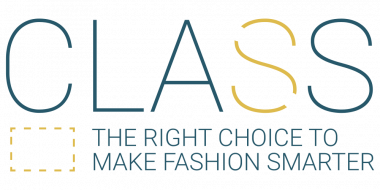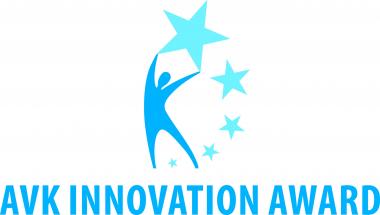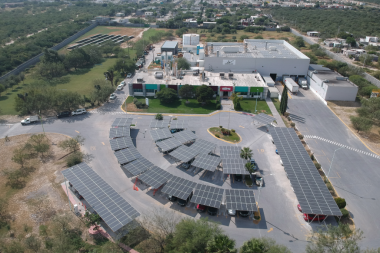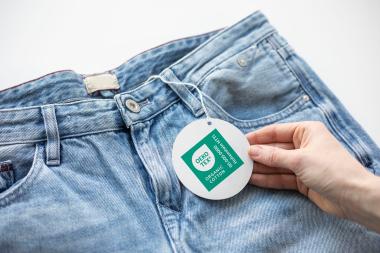ITA Supports SMEs in Digitisation and Sustainability
The Institut für Textiltechnik (ITA) of RWTH Aachen University, as part of the Mittelstandzentrum 4.0 Kompetenzzentrum Textil vernetzt, has supported numerous small and medium-sized enterprises (SMEs) on their way to digitalisation over the last five years. At the Digital Capability Center (DCC) in Aachen, for example, SMEs were able to experience digitised production from yarn to smart bracelets and thus test the feasibility of Industry 4.0 solutions in their working environment.
New supply chain laws and social sustainability now pose current challenges for SMEs. In the follow-up project Mittelstand-Digital Zentrum Smarte Kreisläufe (SME Digital Centre Smart Cycles), ITA will be supporting SMEs from 1 March in implementing ideas for digitalisation and sustainability in concrete terms.
This means finding sustainable solutions and processes for the circular economy together with companies and developing new digital business models. The ITA's solutions cover the areas of awareness-raising, qualification, implementation and networking. These offers are free of charge for SMEs - follow-up projects often lead to the funding programme "Central Innovation Programme for SMEs - ZIM" of the Federal Ministry of Economics and Climate Protection (BMWK) or to research and development projects.
Questions concerning the funding conditions can be sent to the following e-mail address: rosario.othen@ita.rwth-aachen.de.
Institut für Textiltechnik der RWTH Aachen University SMEs digitization circular economy
Institut für Textiltechnik der RWTH Aachen University




























